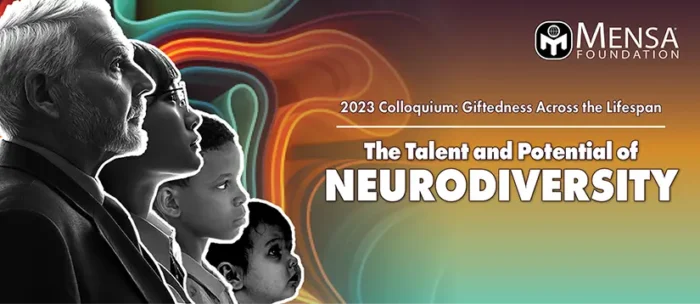We are finally getting to the raw core of who you really are, a hybrid human beyond labels, beyond frameworks, beyond the human suit. Beneath the noise, the rules, and the expectations, there is a system inside you that perceives, processes, and experiences life differently from ordinary minds. This is where we go next.
Somewhere along the way, you realized it. The world moves in rhythms you cannot fully sync with. People follow scripts, schedules, and social norms that feel alien to you. And somewhere in the quiet of your mind, you ask: “Am I even fully human?”
You may have searched for frameworks, labels, or boxes to explain this. Psychology, personality tests, even self-help guides can feel like lifelines. But the truth is simpler and more profound.
You are a hybrid human, a multi-dimensional system that blends intensity with reflection, intuition with logic, sensitivity with boldness. You are not broken. You are complex, and that complexity is your strength.
Why Wearing the Human Suit Feels Heavy
From birth, society zipped you into a human suit: rules, scripts, manners, and expectations. It keeps you passable. It keeps you safe. But it cannot contain your hybrid human system.
For neurocomplex adults, the suit feels heavy. It constrains brilliance, contradictions, and depth. Friction arises whenever your wiring clashes with linear expectations. That friction is evidence of your complexity, not a defect. Alienation signals the domains where your hybrid system is active and alive.
What Being a Hybrid Feels Like
Temporal Complexity
Humans experience time linearly, from past to present to future. You perceive it spiraling, layered with memory, intuition, and future possibilities simultaneously. You may live in multiple times at once, analyzing the past, intuiting the future, and feeling the weight of both. Deadlines and schedules feel confining. It is not that your mind is broken. It operates on a richer temporal spectrum.
Sensory Hybridity
Ordinary environments overwhelm, while subtle cues resonate deeply. Sounds, light, emotions, and energy hit differently. You notice microexpressions, energy shifts, and unspoken dynamics others miss. Surface-level stimuli feel too loud or too dull. Your sensory acuity is a unique lens for interpreting complex reality.
Emotional Paradox
You can feel joy and despair, curiosity and dread, connection and isolation simultaneously. Linear emotional waves feel muted compared to your multidimensional spectrum. Holding paradoxical feelings allows richer insight, profound empathy, and nuanced engagement with life.
Cognitive Multiplicity
Your mind runs parallel tracks, spotting contradictions, patterns, and hidden logic others miss. Simple linear thinking feels constraining. You notice inconsistencies, anticipate multiple outcomes, and hold multiple perspectives at once. This can be exhausting, but it also positions you to solve problems, create art, and innovate in ways linear thinkers cannot.
Philosophical Implications
Identity is Fluid. Your hybrid human system defies fixed labels. You exist across multiple dimensions, simultaneously adapting, reflecting, and evolving. Selfhood is not static, nor is it constrained by categories like personality types, professions, or social roles. Instead, it is defined by patterns, contradictions, and awareness. One moment you may feel analytical and structured, the next intuitive and wildly creative. Recognizing this fluidity allows you to release the pressure to “fit” and explore the richness of your multi-layered existence.
Empathy Expands. Experiencing life differently enhances your ability to perceive subtle emotional, social, and energetic currents. You sense layers others miss, including unspoken tensions, hidden joy, or conflicting emotions in a single moment. This heightened perception enables profound connection, but it also requires boundaries. Expanding empathy is not just about understanding others, it is a tool for navigating complexity with grace, insight, and awareness.
Purpose Emerges Differently. Alienation is a signpost, not a punishment. Feeling out of sync is not evidence of deficiency, it is a guide to environments, challenges, and work where your hybrid wiring thrives. Your purpose is not determined by societal benchmarks or external validation. It emerges when you align with the flow of your own system. Friction signals where your multi-dimensional capacity is most needed. Purpose comes from inhabiting your complexity fully and using it to illuminate paths only you can walk.
How to Live With This Understanding
- Embrace Your Fluid Identity. Accept contradictions and multiple dimensions of yourself. Explore which traits feel alive in different contexts.
Example: Some days you lead with logic and structure, other days with intuition and curiosity. Both are authentic. - Expand Empathy, Mindfully. Use your sensitivity as a gift. Observe without absorbing fully, deepen relationships, and engage in work that resonates on multiple levels.
Exercise: Notice what is said and unsaid in a conversation. Reflect on how different perspectives coexist. - Follow Friction to Purpose. Let discomfort guide you. Where friction arises, your hybrid wiring is most active. Seek challenges and environments that align with your complexity.
- Take Small, Intentional Actions Daily. Speak authentically, explore curiosities, or engage in projects that energize your system. Each act reveals layers of your neurocomplex core.
- Integrate Your Layers Fully. Analytical, intuitive, bold, sensitive—harmonize your traits in decision-making, creative work, and interactions.
- Create Hybrid-Friendly Spaces. Surround yourself with people, work, and communities that honor complexity. Even one aligned connection reinforces your system.
- Align With Your Unique Flow. Use insights from friction, empathy, and identity to structure your life. Engage with the world in ways that are sustainable, generative, and expressive of your complexity.
By observing, acting, and integrating, you live fully as a hybrid human, capable of perceiving, feeling, and creating in ways others cannot. Your contradictions, paradoxes, and friction are not obstacles, they are markers of your raw, neurocomplex core.
The Bottom Line
Not feeling fully human is a signal of hybrid complexity, not a defect. Your system blends paradoxes, intensity, and sensitivity in ways the world cannot always accommodate. That hybridity is your strength.
The question is not “How do I fit in?” It is: “How do I honor my hybrid nature and let my neurocomplex core reveal the work only I can do?”

Lindsey Mackereth is a writer, clinician, and the originator of the term neurocomplexity—a framework that rejects binaries and makes room for the full, messy brilliance of being human. Part therapist, part rebel, and part fellow alien in a human suit, Lindsey blends sharp clinical insight with candid storytelling and a dash of cosmic humor to speak to those who’ve always felt “too much,” “too weird,” or simply too alive for the boxes they were given. She doesn’t try to fix complexity—she holds space for it to be witnessed, felt, and reclaimed. (Also: triple Leo.)
Read more and subscribe on Substack: lindseymackereth.substack.com.










Comments (0)